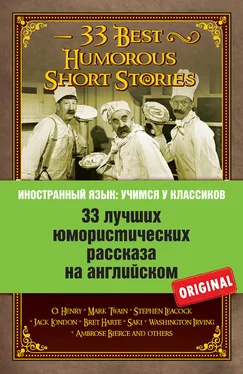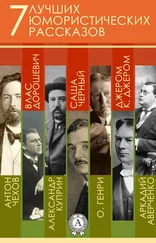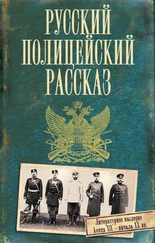Harriwell took his pulse and temperature, made a show of looking out for him, and doubted that the omelet had been poisoned. Brown and McTavish also doubted; but Bertie discerned an insincere ring in their voices. His appetite had left him, and he took his own pulse stealthily under the table. There was no question but what it was increasing, but he failed to ascribe it to the gin he had taken. McTavish, rifle in hand, went out on the veranda to reconnoiter.
‘They’re massing up at the cook-house,’ was his report. ‘And they’ve no end of Sniders. My idea is to sneak around on the other side and take them in flank. Strike the first blow, you know. Will you come along, Brown?’
Harriwell ate on steadily, while Bertie discovered that his pulse had leaped up five beats. Nevertheless, he could not help jumping when the rifles began to go off. Above the scattering of Sniders could be heard the pumping of Brown’s and McTavish’s Winchesters – all against a background of demoniacal screeching and yelling.
‘They’ve got them on the run,’ Harriwell remarked, as voices and gunshots faded away in the distance.
Scarcely were Brown and McTavish back at the table when the latter reconnoitered.
‘They’ve got dynamite,’ he said.
‘Then let’s charge them with dynamite,’ Harriwell proposed.
Thrusting half a dozen sticks each into their pockets and equipping themselves with lighted cigars, they started for the door. And just then it happened. They blamed McTavish for it afterward, and he admitted that the charge had been a trifle excessive. But at any rate it went off under the house, which lifted up cornerwise and settled back on its foundations. Half the china on the table was shattered, while the eight-day clock stopped. Yelling for vengeance, the three men rushed out into the night, and the bombardment began.
When they returned, there was no Bertie. He had dragged himself away to the office, barricaded himself in, and sunk upon the floor in a gin-soaked nightmare, wherein he died a thousand deaths while the valorous fight went on around him. In the morning, sick and headachey from the gin, he crawled out to find the sun still in the sky and God presumable in heaven, for his hosts were alive and uninjured.
Harriwell pressed him to stay on longer, but Bertie insisted on sailing immediately on the Arla for Tulagi, where, until the following steamer day, he stuck close by the Commissioner’s house. There were lady tourists on the outgoing steamer, and Bertie was again a hero, while Captain Malu, as usual, passed unnoticed. But Captain Malu sent back from Sydney two cases of the best Scotch whiskey on the market, for he was not able to make up his mind as to whether it was Captain Hansen or Mr Harriwell who had given Bertie Arkwright the more gorgeous insight into life in the Solomons.
It looked like a good thing: but wait till I tell you. We were down South, in Alabama – Bill Driscoll and myself-when this kidnapping idea struck us. It was, as Bill afterward expressed it, ‘during a moment of temporary mental apparition’; but we didn’t find that out till later.
There was a town down there, as flat as a flannel-cake, and called Summit, of course. It contained inhabitants of as undeleterious and self-satisfied a class of peasantry as ever clustered around a Maypole.
Bill and me had a joint capital of about six hundred dollars, and we needed just two thousand dollars more to pull off a fraudulent town-lot scheme in Western Illinois with. We talked it over on the front steps of the hotel. Philoprogenitiveness, says we, is strong in semi-rural communities therefore, and for other reasons, a kidnapping project ought to do better there than in the radius of newspapers that send reporters out in plain clothes to stir up talk about such things. We knew that Summit couldn’t get after us with anything stronger than constables and, maybe, some lackadaisical bloodhounds and a diatribe or two in the Weekly Farmers’ Budget. So, it looked good.
We selected for our victim the only child of a prominent citizen named Ebenezer Dorset. The father was respectable and tight, a mortgage fancier and a stern, upright collection-plate passer and forecloser. The kid was a boy of ten, with bas-relief freckles, and hair the colour of the cover of the magazine you buy at the news-stand when you want to catch a train. Bill and me figured that Ebenezer would melt down for a ransom of two thousand dollars to a cent. But wait till I tell you.
About two miles from Summit was a little mountain, covered with a dense cedar brake. On the rear elevation of this mountain was a cave. There we stored provisions.
One evening after sundown, we drove in a buggy past old Dorset’s house. The kid was in the street, throwing rocks at a kitten on the opposite fence.
‘Hey, little boy!’ says Bill, ‘would you like to have a bag of candy and a nice ride?’
The boy catches Bill neatly in the eye with a piece of brick.
‘That will cost the old man an extra five hundred dollars,’ says Bill, climbing over the wheel.
That boy put up a fight like a welter-weight cinnamon bear; but, at last, we got him down in the bottom of the buggy and drove away. We took him up to the cave, and I hitched the horse in the cedar brake. After dark I drove the buggy to the little village, three miles away, where we had hired it, and walked back to the mountain.
Bill was pasting court-plaster over the scratches and bruises on his features. There was a fire burning behind the big rock at the entrance of the cave, and the boy was watching a pot of boiling coffee, with two buzzard tailfeathers stuck in his red hair. He points a stick at me when I come up, and says:
‘Ha! cursed paleface, do you dare to enter the camp of Red Chief, the terror of the plains?’
‘He’s all right now,’ says Bill, rolling up his trousers and examining some bruises on his shins. ‘We’re playing Indian. We’re making Buffalo Bill’s show look like magic-lantern views of Palestine in the town hall. I’m Old Hank, the Trapper, Red Chief’s captive, and I’m to be scalped at daybreak. By Geronimo! that kid can kick hard.’
Yes, sir, that boy seemed to be having the time of his life. The fun of camping out in a cave had made him forget that he was a captive himself. He immediately christened me Snake-eye, the Spy, and announced that, when his braves returned from the warpath, I was to be broiled at the stake at the rising of the sun.
Then we had supper; and he filled his mouth full of bacon and bread and gravy, and began to talk. He made a during-dinner speech something like this:
‘I like this fine. I never camped out before; but I had a pet ‘possum once, and I was nine last birthday. I hate to go to school. Rats ate up sixteen of Jimmy Talbot’s aunt’s speckled hen’s eggs. Are there any real Indians in these woods? I want some more gravy. Does the trees moving make the wind blow? We had five puppies. What makes your nose so red, Hank? My father has lots of money. Are the stars hot? I whipped Ed Walker twice, Saturday. I don’t like girls. You dassent catch toads unless with a string. Do oxen make any noise? Why are oranges round? Have you got beds to sleep on in this cave? Amos Murray has got six toes. A parrot can talk, but a monkey or a fish can’t. How many does it take to make twelve?’
Every few minutes he would remember that he was a pesky redskin, and pick up his stick rifle and tiptoe to the mouth of the cave to rubber for the scouts of the hated paleface. Now and then he would let out a warwhoop that made Old Hank the Trapper, shiver. That boy had Bill terrorized from the start.
‘Red Chief,’ says I to the kid, ‘would you like to go home?’
Читать дальше
Конец ознакомительного отрывка
Купить книгу












